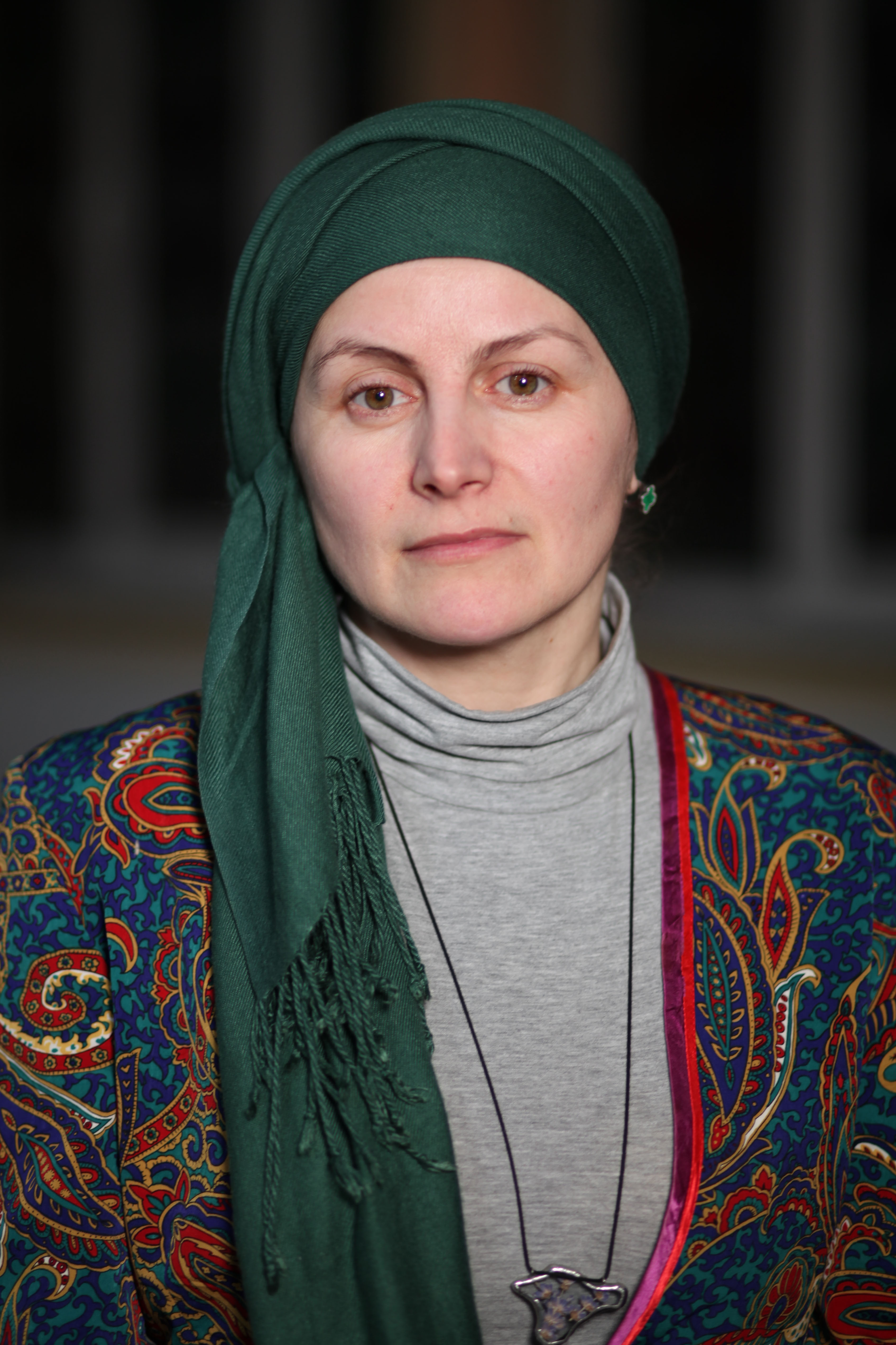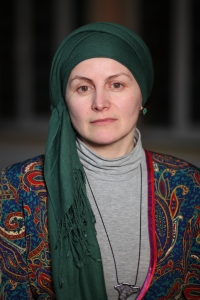And then there was March 3. Since then, March 3 and the occupation of Crimea for me is the murder and abduction of Reshat Ametov, my neighbor. It was sunny and warm, and I just saw, I was outside, it was about 12 o'clock, in the afternoon. I saw: Zarina, Reshat Ametov's wife, is running. She can hardly stop herself from crying, from screaming, running to her closest friend, who is also a Crimean Tatar, Sana, almost crying, and her eldest son Ali is running after her. And he shouts, “Ana, ana!” — ”Mom, mom!” I stop her and say, “What happened?”. She says, “Reshat is not picking up the phone, he is not answering all the phone calls.” I say, “Give me [his] photo, let's post it, I'll post it on Facebook, and we'll look for him there.” And from that moment on, without realizing it, I became an activist. Then, we printed out these announcements and stuck them in crowded places - at bus stations, train stations, and markets. Later, we ran announcements on the ATR TV channel. It was only later that this video was found, where he was forcibly detained and led by the so-called “Cossacks” and the so-called self-defense under the arms and forced into a civilian car. That is, it was not law enforcement officers who did this; if he had violated public order, civil order, it would have been one thing. But he was just standing facing the building of the Council of Ministers in the central square of Simferopol. I'm not even sure if there was a Ukrainian flag there. Or maybe there was. He told his wife that he was going to the military registration and enlistment office. Again, this is about the story of the Euromaidan in Crimea when there were volunteers who wanted to go, went to military commissariats to volunteer.
Probably, it was already there — these claims that something will happen soon, some kind of conflict. But I think that he had a spontaneous desire to demonstrate his protest in some way, and there was no time for any kind of meeting. It should be emphasized here that he was not a public person, he was not an activist, he was not a member of the Mejlis, although everyone in the Mejlis knew him and he used to visit the Mejlis. But he was a solitary man and a lone warrior. That's how he was. And he had this very heightened sense of justice. Even in small things. Unfortunately, on March 16, in the evening, I received a call from the legal department of the Mejlis of the Crimean Tatar people and was informed that they had found a body and that it was probably Reshat. Indeed, it was. At 7 p.m. we were in the Ametovs' house together with Emirali Ablayev, the mufti, then the mufti of Crimea, and now a collaborationist. Reza Shevkiev was also there, he is the head of the Crimea Foundation, now in Kyiv, and we brought the news to the Ametovs' house. And then it all began... I reported on all these events - the search, all the events of the search, how the family lives, how we are searching, and where we are searching. Even Reshat's own brother Refat appealed to those “Cossacks,” the so-called self-defense, and they told him so bluntly, “Of course, we will help you find your brother.” Of course, this did not happen. He was compelled to turn to them, because he really wanted to find Reshat. Then there was a funeral, just a day before the so-called referendum, a massive, very, very loud one. Reshat's funeral was loud and very crowded. Reshat wanted it that way... His last post on Facebook, on his page, was in Russian, I won't quote it verbatim, but, “Russian soldier, get out of Crimea. I'm going to protest tomorrow, who's with me?” Later, the FSB took the laptop, but that was his post. And so he wanted to have like-minded people with him, who felt that this was no simple [matter], that it was something paradoxical, absurd, something illegal, an illegal crime being committed at the global level. This was something that people with a very keen sense of justice could feel, of course. Then, basically, my daily interviews with different media, from different countries, began. Zarina, his wife, his widow, could no longer do this, physically and morally, of course. I just felt that I needed to speak out so that the whole world would know what was happening here. Because this was a tragedy of one Crimean Tatar family, which later became a tragedy of the entire Crimean Tatar people. I said, “Sit down”. She was crying, I said, “Sit, cry, I'll talk”. And so, in broken English, Turkish, Russian, I gave interviews to foreign media. Including Russian ones. I wanted them to know.

